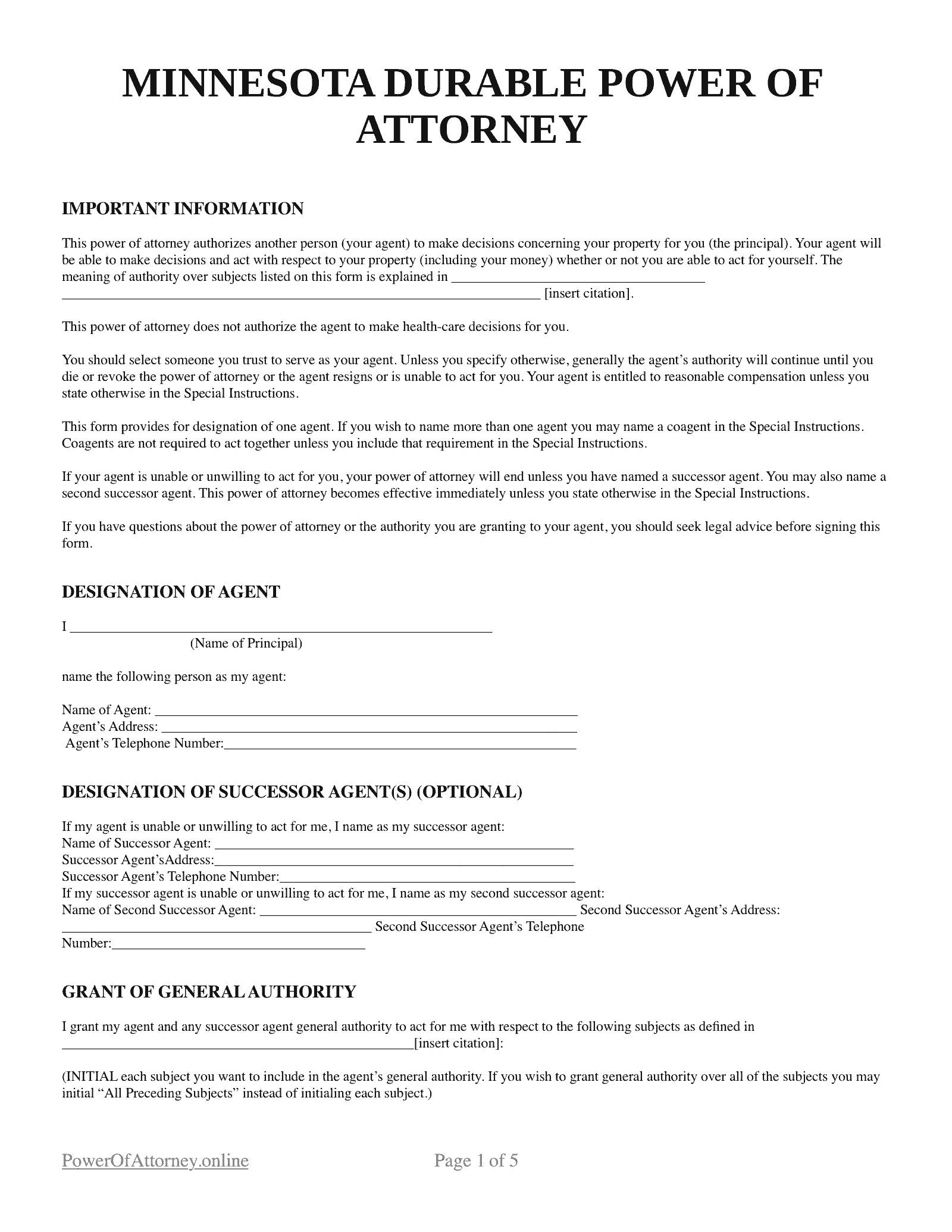Free Minnesota Power of Attorney Forms
There are times when you can’t personally attend to all your transactions. When this happens, you can assign someone else to handle them with a power of attorney (POA). It is a legal document that allows a person, referred to as the principal, to appoint an agent or attorney-in-fact to make decisions on their behalf.
There are different types of POAs. Knowing which one you need is essential. Here is everything you need to know about power of attorney forms in the state of Minnesota.

Minnesota Power of Attorney By Type
What type of POA do you need? We have a list of the different types and when you can use them:
- General Power of Attorney - This form grants the agent broad powers to execute transactions or make decisions on behalf of the principal. These could be financial, business, or legal in nature. The document loses its power when the principal becomes incapacitated.
- Durable Power of Attorney - Unless the POA is durable, powers of attorney typically lose their power or authority when the principal is declared legally incompetent. The durable POA is a type of permission given to an agent so that businesses and other legal matters are not affected by health issues like mental incapacity.
- Healthcare or Medical Power of Attorney - This is a document that allows an agent to decide on the medical care of the principal. Agents can decide on the medicines, procedures, and treatments that the principal will undergo, including life-and-death decisions. This type of POA is always durable to ensure that the principal’s healthcare needs will continue to be met even if the principal is declared legally incompetent.
- Special Power of Attorney - This is a type of POA where the authority is specific. The principal may authorize the agent to conduct specific financial or legal transactions for them. When they have been accomplished, the form loses its power.
How to Get a Power of Attorney in Minnesota
A principal can talk to a lawyer, visit a law firm, or download a printable POA form in Minnesota to get started. The appointed agent must be at least 18 years old. The principal and the agent must discuss the contents of the POA before finalizing the document.
To ensure the validity of general and durable POAs, the principal must sign the POA in the presence of a notary public. On the other hand, the medical or healthcare POA must be signed in the presence of a notary public and two witnesses.
Minnesota Power of Attorney Laws
The 2022 Minnesota Statutes is a set of laws that govern the signing and implementation of powers of attorney in the state. The law states: “The power of attorney is validly executed when it is dated and signed by the principal and, in the case of a signature on behalf of the principal, by another, or by a mark, acknowledged by a notary public” (MN Stat § 523.01).